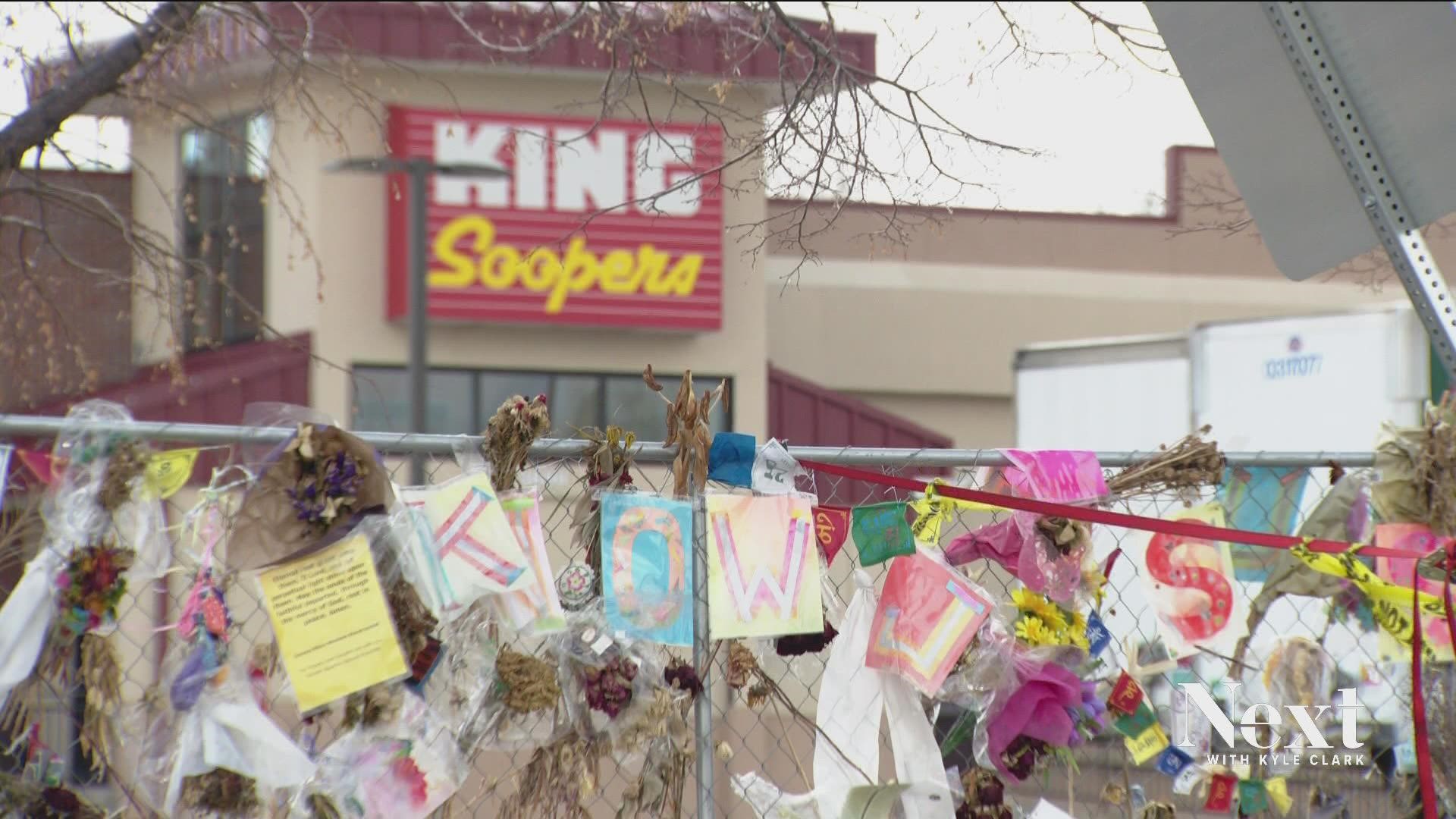DENVER — Colorado lawmakers have passed several gun-related bills over the last few years. While they are in charge of the Colorado House, Senate and governor's office, there appears no effort to pass some of the most restrictive legislation.
"We could pass an assault weapon ban at the state level. I support that. But is that going to save the most lives? Probably not, given the fact that we are just one state, there are probably tens of thousands of assault weapons already here and you can drive an hour-and-a-half north and purchase them," said State Senate President Steve Fenberg (D-Boulder).
Democrats hold a 20-15 advantage over Republicans in the state Senate. They hold a 41-24 edge in the state House. If the Democrats maintain control of the state Senate after November's election and Gov. Jared Polis (D) is reelected, what could be the next bills to be considered?
"There are conversations around who is liable after a horrible event occurs, I think that's been an ongoing legal conversation, it's something I'm interested in discussing more," said Fenberg.
Two months ago, lawmakers passed a bill that was signed into law that bars the possession of weapons within 100 feet of a polling place.
"There could be more conversations around what are places that are sacred that we should not have mass killing weapons at because they intimidate people or potentially even put people in grave danger," said Fenberg.
Following the Boulder King Soopers shooting, which killed 10 in March 2021, Fenberg was involved in conversations about gun-related legislation.
"The first policy requests were, kind of, knee-jerk responses, just like, 'I don't care what you do, just get rid of the guns, make sure this never happens again.' And then you start getting into the weeds on what policy could look like," said Fenberg. "The moment after that shooting in Boulder, we didn't say, 'We're going to do 'X, Y and Z,' this is our moment.' We said we're going to listen to the community and the experts and do what we think is going to save the most lives."
In 2021, the legislature also passed a bill to prevent people who commit certain violent misdemeanors from passing a background check.
"We strengthened the background check system and said anyone with any sort of violent criminal history, even if it's a violent misdemeanor is not eligible to purchase that gun," said Fenberg.
That bill also required a background check to indicate a person passes, instead of allowing a person to buy a weapon if there is no response or the system is down for an extended period of time.
Another bill passed in 2021 after the Boulder King Soopers shooting, was to give local governments power to enact gun-related ordinances. It was in direct response to a judge overturning Boulder's ban on assault weapons and large capacity magazines.
"It's going to look different in Boulder than it does in Denver versus Sterling or Grand Junction, and I don't think we should always rely on a state law to apply to all of those different communities," said Fenberg.
Fenberg also mentioned the Office of Gun Violence Prevention, which was started with a 2021 bill.
The office just hired a director, but has not yet applied for any grant funding.
That office is supposed to look at gun violence as a public health issue, using scientific data.
"A lot of this is actually about self-inflicted gun violence, so suicide. It's a public health issue. It's not just crime, it's not just politics, it is a public health issue when you have this many people dying regularly," said Fenberg.
As head of the Senate, Fenberg said that there is not a gun policy that Democrats want, but have not tried out of concern for public blowback.
"I actually think we have pursued what we think the experts tell us is going to save the most lives," said Fenberg. "I don't think there's a policy that we know is going to save lives but we're not doing it because we don't think the public will is behind it."
The one area Democrats and Republicans might not be so far apart on regarding guns, would be public health legislation.
"Obviously, there's a behavioral health component. Obviously, this is not just about actual gun policy, but it's about something core in our society. You know, a problem that needs to be addressed," said Fenberg. "What are the really difficult, long-term things we need to do to invest in behavioral health? Because there is a behavioral health crisis in this is state, there is a gun crisis in this state, I don't think they're unrelated."
He pointed at inaction by Congress as something that could enhance the laws already on the books in Colorado.
"I think a lot of the anger these days, rightly so, is targeted at Congress because they have willfully ignored those demands and done literally nothing to save lives," said Fenberg. "We need to ask ourselves, how much can one state do? And at what point do we need that state policy backed up by federal baseline policies?"
SUGGESTED VIDEOS: Full Episodes of Next with Kyle Clark

